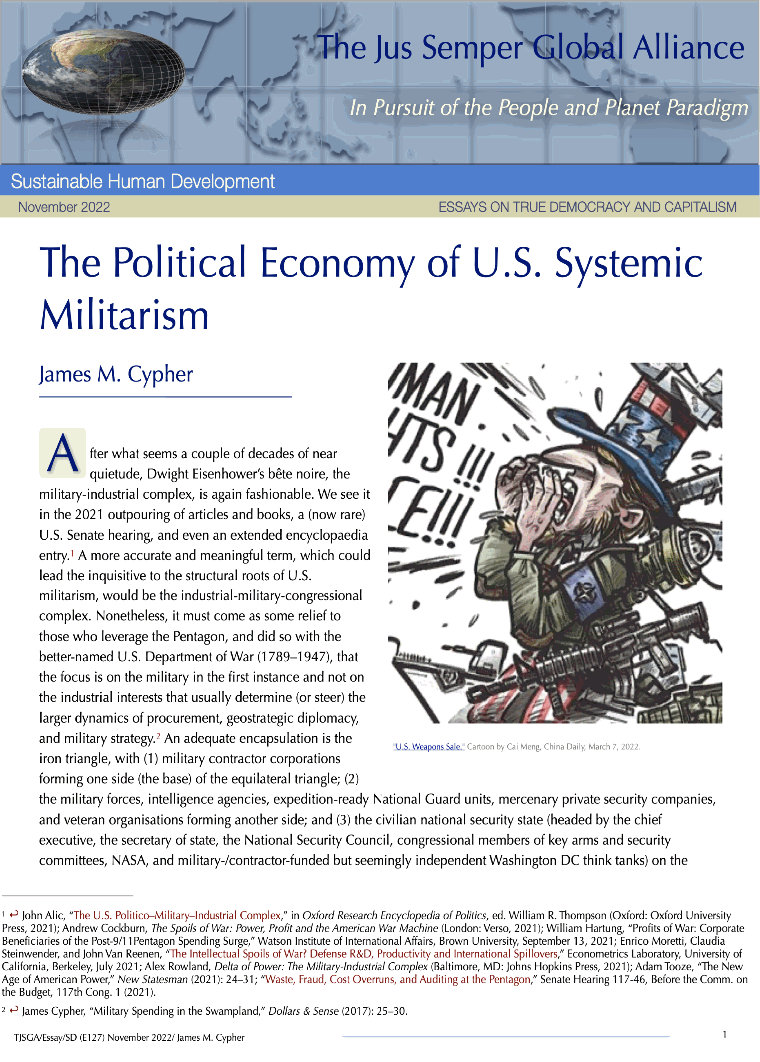Torkil Lauese As Immanuel Ness writes in his new book, Migration as Economic Imperialism, with the emergence of the United States as the indisputable dominant economic and military world power…capitalist development strategists began to shift their focus to low-wage southern labour, precisely as the northern economies were shifting from manufacturing to service industries. Thus international labour migration expanded dramatically in the 1990s to reduce shortages in the Global North of low-wage workers willing to work in tedious jobs in agriculture, construction, urban services, manufacturing and home care.
For a full read of this brief, click here or on the picture to download the pdf file.
|

- © The Jus Semper Global Alliance
| Home |  | Resources |  | Economic Data |  | The Political Economy of Migration |


